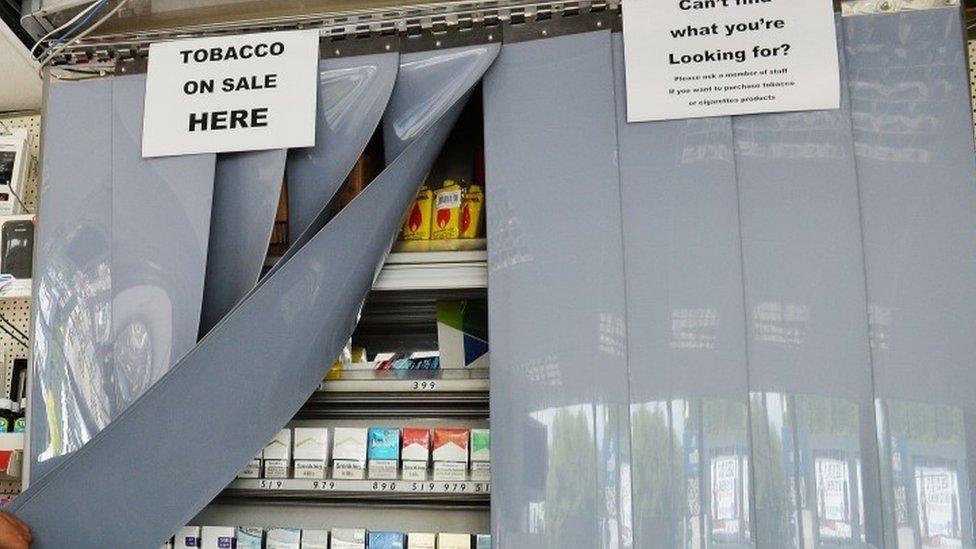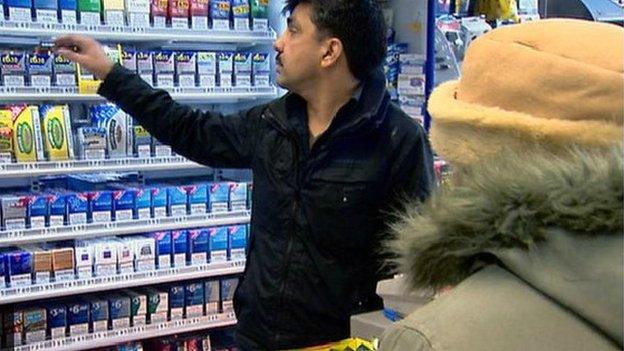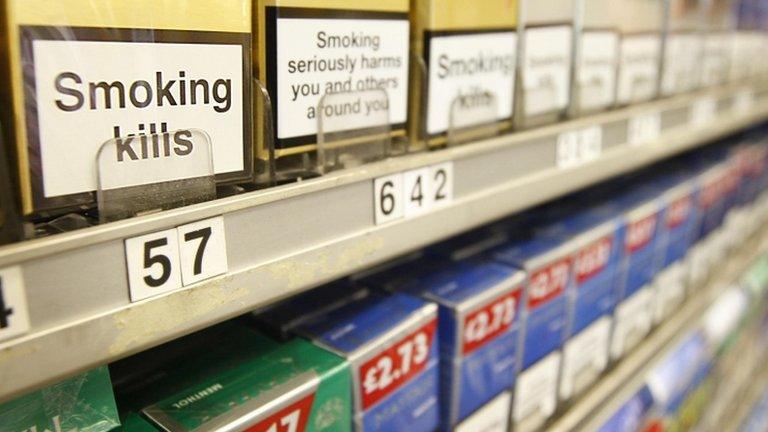Sales push follows Scottish cigarette display ban
- Published

The ban on the display of cigarettes and other tobacco products was extended to smaller shops in Scotland in April 2015
Tobacco firms have adapted their marketing effort following new rules on cigarette displays, research has found.
Retailers reported incentives being offered for actions such as maintaining stock availability, trialling new stock and promoting brands.
They told the research team these bonuses had become more prevalent since the ban.
The research is a collaboration between the universities of Stirling, St Andrews and Edinburgh.
They carried out the work with social research institute ScotCen. The report will be published in the journal Tobacco Control, external.
Retailers interviewed
The researchers said: "There was a perception among some retailers that whereas before the display ban they had had to work 'extremely hard' to qualify for points or bonuses, after the ban simply having specified brands in stock was sufficient."
The ban on the display of cigarettes and other tobacco products was extended to smaller shops in Scotland in April 2015.
The researchers interviewed a sample of 24 retailers, including convenience stores, newsagents and petrol stations.
Most of them - 17 out of 24 - said they had been given assistance by tobacco suppliers to adapt their display unit to comply with the new rules.
These require tobacco products to be kept out of sight behind doors or covers.
'Exerting influence'
"The rationale for bans on tobacco promotions and displays at point of sale is to reduce the ability of tobacco companies to exploit the retail environment in this way," the report said.
"However, this study demonstrates that display bans do not prevent them from attempting to exert influence on retailers via their sales reps."
Incentives were often incorporated into existing "partnership" or "loyalty" schemes, with points redeemable against cash or gifts, including hospitality, iPads, and business equipment.
The study's lead author, Martine Stead, added: "The tobacco companies rely on retailers even more to promote tobacco now that displays are covered up.
"They are still offering them payments and rewards, including substantial lump sums to make verbal recommendations to customers to try a particular brand."
- Published6 April 2015

- Published29 April 2013
